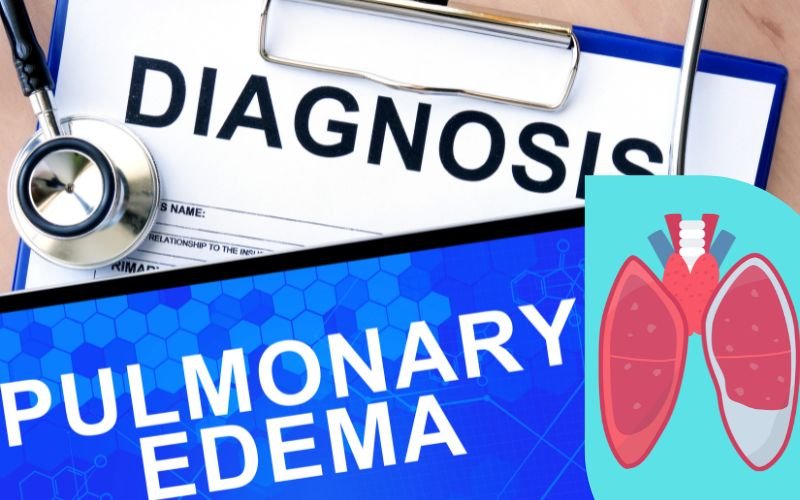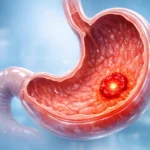Pulmonary edema is a critical lung condition. It happens when fluid builds up inside the air sacs of the lungs. These sacs are called alveoli. When fluid fills them, breathing becomes difficult. The oxygen that you inhale cannot enter your blood properly. The result is shortness of breath, coughing, and in some cases, life-threatening complications. In simple words, what’s a pulmonary edema? It’s a blockage in your lung’s ability to do its job—help you breathe.
This condition can affect people of all ages, but it becomes more common with heart problems or exposure to high altitudes. In urban cities like Delhi, air quality, lifestyle diseases, and untreated infections may increase the risk. The growing number of patients seeking care at every major lung hospital in Delhi shows that the condition needs urgent awareness. This article explains how serious pulmonary edema is, what causes it, how it feels, and where to seek help.
What Happens Inside the Lungs During Pulmonary Edema?
To understand the danger, it helps to know what’s happening in your body. The lungs have small blood vessels that carry oxygen and carbon dioxide in and out of your bloodstream. When these vessels leak due to pressure or damage, fluid escapes. The fluid then collects in the alveoli.
This process stops oxygen from passing into the blood. Your lungs are still working, but they are drowning in fluid. The feeling is like gasping for air while underwater. For someone with no history of lung problems, this can feel terrifying. For patients with existing heart or lung issues, it can become fatal quickly.
Pulmonary Edema Causes That Often Go Overlooked
There are many pulmonary edema causes, and not all are related to lung infections. Heart failure remains the leading cause. When the heart’s left ventricle fails to pump blood efficiently, the blood backs up in the lungs. This increases pressure in the veins, and that pressure forces fluid into lung tissues.
Other causes include kidney failure, severe infections like pneumonia, injuries from chest trauma, and blood clots in the lung. High-altitude exposure also causes a rare form of pulmonary edema in mountain climbers. Even inhaling harmful toxins or smoke can trigger it. In Delhi, where pollution levels often stay high, toxic air may act as a silent factor.
Some patients develop pulmonary edema from overuse of medications or during surgery, especially if fluids are given too rapidly. This is why specialists at a top pulmonology hospital in Delhi often run detailed tests before confirming a treatment plan.
Common Pulmonary Edema Symptoms to Watch Out For
The signs come on fast. The most common pulmonary edema symptoms include shortness of breath, wheezing, fatigue, and confusion. Some people feel like they are suffocating, especially when lying down. The body reacts by increasing heart rate and sweating.
As the fluid builds up, the cough gets worse and brings up frothy sputum that may be tinged with blood. In some cases, the skin turns blue due to low oxygen levels. These symptoms can come during physical activity or even while resting.
In chronic cases, symptoms develop more slowly but still get worse over time. These include swelling in the legs or feet, gaining weight due to fluid retention, and persistent difficulty breathing. Any delay in care may increase the risk of organ failure.
Diagnosing Pulmonary Edema
A doctor may ask for a pulmonary edema X-ray when they suspect fluid buildup. This is often the first step. An X-ray helps show the extent of congestion and fluid present in the lungs like phlegm in Lungs or any other. The lungs appear more opaque than normal. In severe cases, they may show “bat-wing” patterns where the fluid spreads.
Other tests include ECGs, blood tests to check oxygen levels, and echocardiograms to see heart function. These steps help confirm if the problem is heart-related or due to other causes. A skilled pulmonology specialist in Delhi can make quick, accurate assessments using both imaging and clinical signs.
Pulmonary Edema Treatments in Delhi Available Today
Modern medicine offers many pulmonary edema treatments, but time plays a major role. Immediate care focuses on stabilizing oxygen levels. Oxygen is given through masks or in severe cases, through a ventilator. If the cause is heart-related, diuretics are used to remove excess fluid from the body.
Nitrates and blood pressure medicines help reduce strain on the heart. Infections are treated with antibiotics. When altitude is the cause, oxygen and descent to lower ground usually improve symptoms fast. In many emergency rooms, doctors use non-invasive breathing machines before switching to intubation.
The long-term treatment for pulmonary edema also includes managing underlying conditions. That means strict control of blood pressure, sugar levels, and cholesterol. Patients are advised to quit smoking, follow a low-salt diet, and take their medications regularly.
Early Pulmonology treatment in Delhi and follow-up
Without quick medical care, pulmonary edema can worsen in hours. If oxygen is not restored, the body’s organs start to shut down. Brain damage, kidney failure, and even death can follow. That’s why early signs should never be ignored.
Ongoing follow-up with a good pulmonology hospital in Delhi ensures that complications don’t return. Doctors use regular scans and breathing tests to track lung function. In some cases, surgery might be required to fix heart valve issues that are causing fluid retention.
Pulmonary edema is a real medical emergency. If left untreated, it can lead to severe complications. The lungs lose their ability to function, and the body suffers from oxygen shortage. However, with early detection, accurate diagnosis, and the right care, most patients recover well.
In Delhi, top-tier hospitals have made advanced pulmonary care more accessible. Among them, Primus Hospitals stands out for its commitment to quality treatment. The hospital combines state-of-the-art equipment with experienced specialists, offering complete care from diagnosis to rehabilitation. Our team includes some of the best pulmonologists in the city, who are trained to handle complex cases with precision.













